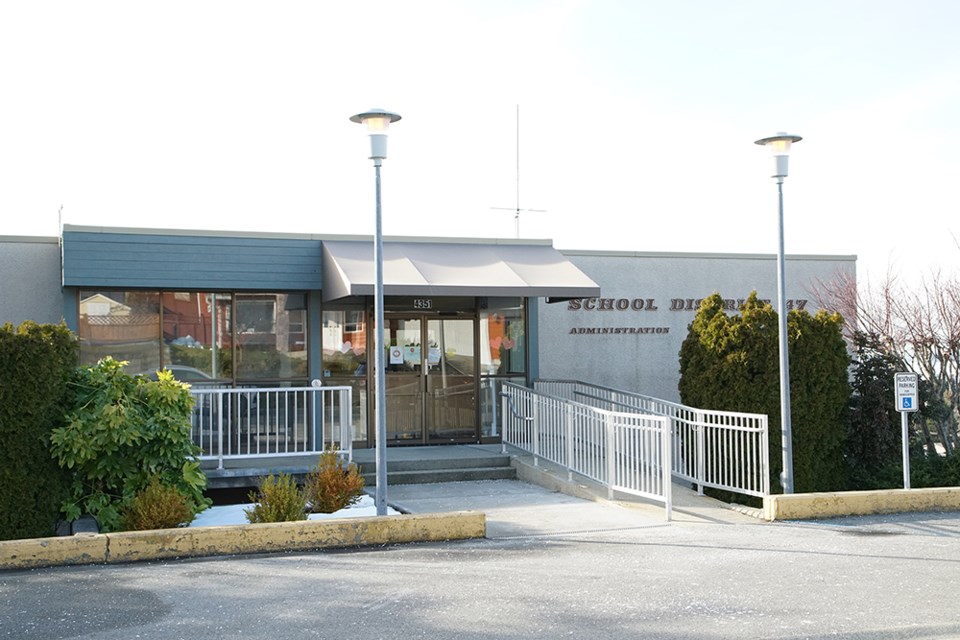This week School District 47 announced the board of trustees’ unanimous decision to change the board of education and district name to qathet School District, joining a long line of public institutions, businesses and organizations that have removed the harmful name Powell from their operations.
qathet means “working together” and strikes me as the perfect name for a school system committed to bringing together kids, educators and differing world views for the betterment of our families and this region as a whole.
Although there have been over 30 name changes in our region, somehow, the school district change feels especially important. As a kid going to school at James Thomson Elementary, Brooks Secondary and Max Cameron schools, I never really thought about Powell, who he was and why our town was named after him.
On this occasion of a school district name change, I want to share some of what I have learned in the hopes you will understand why this change is important to us as your neighbours.
Who was Powell River’s namesake Israel Wood Powell?
Powell was the first Superintendent of Indian Affairs for the Province of BC, a position he held for 17 years.
According to the historical record, he was appointed to the position as a political favour rather than holding any special knowledge of First Nations in BC. His appointment was criticized by his contemporaries at the time as cronyism.
Powell was a largely absentee superintendent for the first decade on the job and was reprimanded for not doing his job eight years into the post. Despite his failure in the role, he was given the additional responsibility for the military and was named BC’s lieutenant-general of the militia.
Powell welcomed the power of the military as a tactic to intimidate First Nations people into accepting assimilationist policies. One of his most lasting and deeply negative legacies was legislation that would ban the potlatch and associated governance and cultural practices from 1884 to 1951. Powell made his views clear on potlatching in his first annual report:
‘Patlatches’ [sic], no doubt, not only retard civilizing influences, but encourage idleness among the less worthy members of a tribe, and will, I trust, by wise administration become obsolete in time. [Report of the superintendent of Indian affairs, for British Columbia, for 1872 & 1873,” 8.]
The criminalization of this practice paired with the removal of Tla’amin children to residential school broke the transmission of vital teachings from one generation to the next.
Powell also recommended the establishment of Kamloops Indian Residential School. In his 1882-1883 annual report he advocated for the separation of First Nations kids from land, way of life and kin:
[The] opposing impressions and vicious allurements incident to the daily return of the child from school to un-civilized camp life, and the failure of the system to accomplish much in the way of education may be readily understood. The only scheme for meeting the difficulty appears to me to be the establishment of two or three industrial boarding schools in the Province, where, separated from native customs and modes of living, children would have opportunities of putting in practice what they are taught in school. [Annual Report of the Department of Indian Affairs 1883, p.167]
Closer to home and when reserves were being created, Powell used his position of authority as Superintendent of Indian Affairs to intentionally delayed the survey of Tla’amin, Klahoose and Homalco territory. Powell dissuaded Gilbert Malcolm Sproat and the reserve commission from visiting Tla’amin, a delay that enabled industrial interests to illegally purchase Lot 450, including Tis’kwat, a principal settlement of the Tla’amin people.
Finally, according to the historical record, Israel Wood Powell didn’t actually step foot on the territory. He didn’t contribute to this community or its current beauty and excellence.
Powell’s decisions continue to impact Tla’amin people to this day and the burden of healing from his harmful legacies too often falls on Tla’amin people alone. Removing the name Powell from institutions and organizations is a powerful and healing step that gives our Nation hope.
When it comes to education, I firmly believe that knowing is key to growing. I hope what I’ve shared will help you to understand why the school district name change is so important to us.
John Hackett is hegus of Tla’amin Nation.



